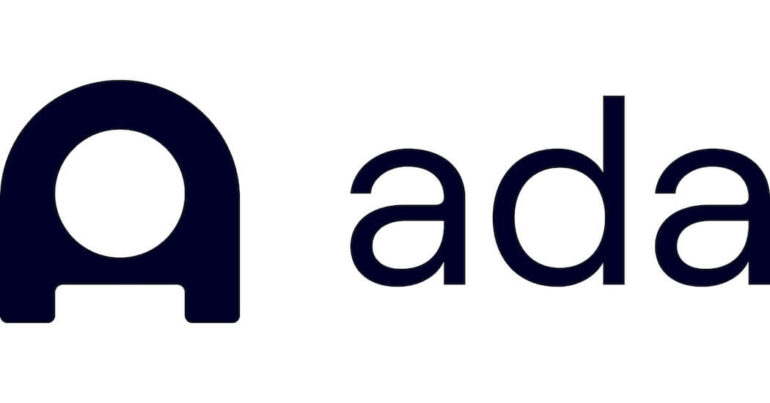Canadian AI unicorn Ada has undergone a second round of layoffs following initial cuts in September, BetaKit has learned.
Ada confirmed the recent layoffs to BetaKit, noting that employees were informed on February 1. Ada did not respond to questions about the number of employees that have been let go from the company, stating only that it reduced “a portion” of its workforce. Ada is a sizeable company, according to LinkedIn data, which shows it employs around 480 people.
More than a dozen posts have popped up on LinkedIn in the last 24 hours with people saying they were impacted by this latest round of cuts.
Senior leadership appears to not have been immune. Ada’s chief technology officer Jessica Popp posted to LinkedIn that she was let go as part of this round of cuts. As did both a vice president and senior director of engineering, and a senior manager for talent.
Now-former vice president of engineering Brandon Grady wrote that Ada made “sweeping changes to pivot and respond to the changing realities of today’s economy.”
“[This] enables us to weather the uncertain macroeconomic environment for as long as it may last.”
Ada declined multiple interview requests for this story. In an emailed statement, the customer service automation startup said the decision was made due to “operating in an uncertain and increasingly challenging economic climate” requiring Ada to “carefully examine our existing operating mode.”
Ada claimed that the fundamentals of its business remain strong and the reduction better positions the company for future success. Ada, which touts itself as “the leader in automated customer experience,” offers an AI chatbot for large brands.
The company’s second set of layoffs comes around four months after Ada laid off 16 percent of its staff. These initial cuts impacted 78 people. At the time, Ada co-founder and CEO Mike Murchison wrote in a LinkedIn post that the reductions came in response to a tightening of the economy, and an increased focus on a new product strategy. The majority of that round of layoffs impacted marketing, sales, and recruitment within the Canadian unicorn’s team.
Ada is far from alone in doing multiple rounds of layoffs. Rounds of cascading layoffs have become a trend as tech companies adapt to the drastic switch-up from the boom times of 2020 and 2021.
These waves of staff cuts are coming from both startups as well as giants like Salesforce.
In Canada, Clutch, Clearco, and Hootsuite are all examples of companies that have done more than one round of layoffs within the last six months. Fellow unicorn company Clearco made two mass layoffs within a six-month period. Hootsuite has done three separate rounds of layoffs, with its headcount decreased by more than 35 percent since its initial cuts.
In Clutch’s case, the additional round of cuts was much more sizeable the second time around, amounting to 65 percent of its staff versus a 22 percent reduction made in June.
The trend of companies doing multiple sets of layoffs has been a surprising one to some. Venture capitalists (VCs) that BetaKit has spoken with have noted that for startup management teams that have not experienced past recessions, the need for rounds of cascading layoffs has been unexpected.
There can be multiple reasons for companies doing staff reductions in this way. As Nolan Church, the CEO and co-founder of fractional work platform Continuum, told TechCrunch, business deteriorating, poor forecasting, or both, can play into multiple rounds of layoffs.
In addition, startups in this landscape also face much more limited availability of funding. With typical runways for venture-backed companies of 12 to 20 months, companies that raised capital a couple of years ago may be looking to this year to bolster their working capital. However, they face a fundraising market that is vastly different from a couple of years ago.
RELATED: As Big Tech makes mass layoffs, recent Canadian startup reductions might cut deeper
As in Tehama’s case, the startup raised funding in early 2020, and when it tried to raise additional capital from its investors, they backed out after conditions for the startup had changed.
Venture firms and their limited partners are being more cautious about how they dole out capital. High valuations from the past couple of years are being cut or questioned and leading to more complicated deal terms.
Ada last raised capital in May 2021 when it secured a $130 million Series C round and reached a $1.2 billion valuation. Its investors include Spark Capital, Tiger Global, Accel, Bessemer, and Version One Ventures. The startup has not publicly announced any additional capital raises since its Series C round in May 2021 and did not respond to questions about whether it has secured any additional capital since that time.
Ada did not elaborate on the reasoning for its second cuts. However, the company did note in its statement to BetaKit, “this restructuring sharpens our focus on our mission to deliver the AI platform that makes customer support great for everyone. It also enables us to weather the uncertain macroeconomic environment for as long as it may last.”
When Ada made its first round of layoffs, Murchison noted that the company had seen fewer new customers than it originally forecasted. The CEO added that Ada had grown its employee base over the past year on the assumption that the company would see similar demand to what it had seen in the last five years.
Feature image courtesy Ada.


